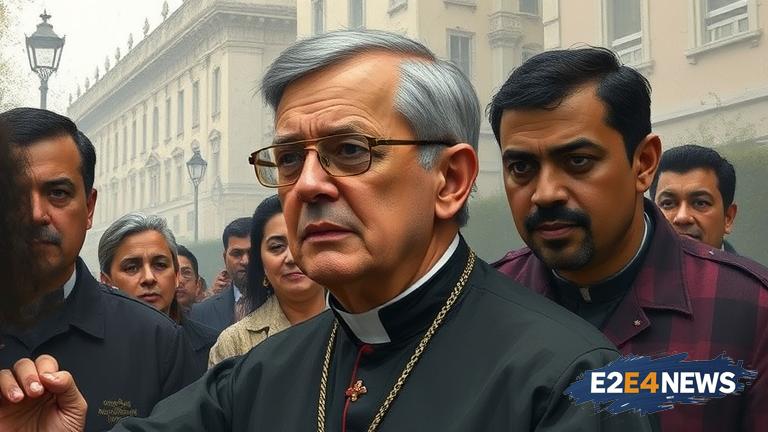In a shocking turn of events, an auxiliary vicar of the Opus Dei prelature in Argentina has been charged with human trafficking and labor exploitation. The allegations against the high-ranking church official have sent shockwaves throughout the Catholic community. According to reports, the auxiliary vicar allegedly exploited vulnerable individuals, subjecting them to forced labor and trafficking. The charges are the result of a thorough investigation conducted by Argentine authorities. The investigation revealed a pattern of abuse and exploitation, with the auxiliary vicar allegedly using his position of power to coerce and manipulate victims. The victims, many of whom were immigrants or individuals from disadvantaged backgrounds, were forced to work long hours in hazardous conditions without proper compensation. The auxiliary vicar’s actions are a stark contrast to the values of compassion and empathy that the Catholic Church purports to uphold. The scandal has sparked widespread outrage and calls for greater accountability within the Church. The Argentine government has vowed to take swift action against those responsible for the exploitation. The case serves as a stark reminder of the need for greater vigilance and oversight to prevent such abuses of power. The Opus Dei prelature has faced criticism in the past for its secretive nature and alleged involvement in questionable activities. The current scandal has brought renewed attention to these concerns and raised questions about the organization’s commitment to transparency and accountability. As the investigation continues, it is likely that more details will emerge about the extent of the auxiliary vicar’s involvement in the human trafficking and labor exploitation scheme. The Catholic Church faces a significant challenge in restoring public trust and demonstrating its commitment to protecting the vulnerable. The Argentine government’s response to the scandal will be closely watched, and it is likely that the case will have far-reaching implications for the Church and its relationships with governments and communities around the world. The scandal has also raised questions about the role of religious institutions in preventing and responding to human trafficking and labor exploitation. Ultimately, the case serves as a reminder of the need for greater awareness and action to prevent such abuses and protect the rights and dignity of all individuals.
